Good news for people
Millions of deaths from malaria prevented in the 21st century
An estimated 2.1 billion cases of malaria—and 11.7 million malaria deaths—have been averted globally between 2000 and 2022 as a result of scaling up malaria control interventions—an astonishing public health achievement. The rollout of the new malaria vaccines provides fresh hope that progress can be maintained. WHO
Ebola tamed by vaccines
Remember Ebola? If you're wondering why you don't really hear about it anymore, it's because scientists came up with a vaccine, and there are now over half a million doses in the global stockpile. As outbreaks become smaller and containment happens more quickly, most of the doses are now being repurposed for preventive vaccination. WHO
EU adopts first law tackling violence against women
Lawmakers just gave the green light to the bloc's first law devoted to combatting violence against women. It requires countries to criminalise female genital mutilation, forced marriage, and online harassment and aims to protect women from gender-based violence, make reporting crimes easier, and impose jail sentences for offenders. DW
Over half a billion people freed from neglected tropical diseases
The WHO says that the number of people requiring intervention against NTDs has fallen from 2.19 billion in 2010 to 1.62 billion in 2022, a decline of 26%. This means that in just over a decade, 570 million of the world's most vulnerable people have been spared from the immense suffering caused by these diseases.
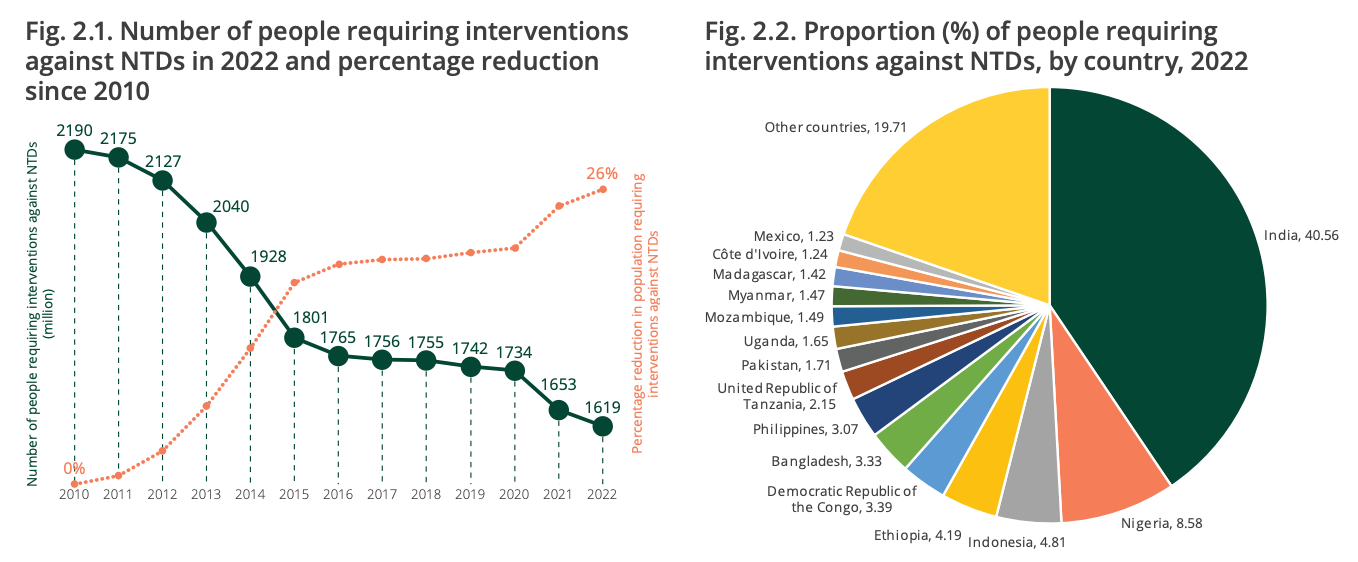
Belgian parliament approves labour law for sex workers
Following the decriminalisation of sex work in March 2022, the country's lawmakers have now passed a law that makes it possible for sex workers to work under an employment contract, giving them access to social security, pension and unemployment benefits, health insurance, family benefits, annual vacation, and maternity leave. Utsopi
Brazil murder rate falls to 14-year low
Brazil ended last year with its lowest record of intentional homicides since 2010, vehicle and goods theft down by around 10%, and financial crime down by 40%. Cases of robbery resulting in death fell by almost a quarter, and police launched 227 anti-corruption operations and 182 operations to combat illegal activities in the Amazon. Gov.br
Milestones for elimination of mother-to-child transmission of HIV
Belize, Jamaica, and Saint Vincent and the Grenadines have been certified by the WHO as having eliminated the mother-to-child transmission of HIV and syphilis, and Namibia has become the first high-burden country in the world to reach a significant milestone on the path towards eliminating mother-to-child transmission of both HIV and viral hepatitis B.

More girls are attending school in India
School enrolment in India has seen a steady increase over the last decade, from 96.7% in 2014 to 97.2% in 2018 and 98.4% in 2022. Female enrolment in particular has risen. The percentage of girl students between the ages of 11 and 14 not enrolled in school has dropped from 10% in 2006 to 2% in 2022. Scroll
Hate speech criminalised in South Africa
South African President Cyril Ramaphosa has signed a new law combating hate crimes and hate speech. The new law targets discrimination based on various characteristics. LGBTQ+ organisations have praised the law, which criminalises hate speech and hate crimes with penalties of fines or up to eight years in prison. Washington Blade
Crime is plummeting in England and Wales
Four in five people in England and Wales think that crime is getting worse. The data show the opposite: between 1995 and 2023, violence, burglary, and car crime have declined by more than 80%. The drop in violence includes domestic violence and other violence against women. Anti-social behaviour has similarly declined. The Conversation
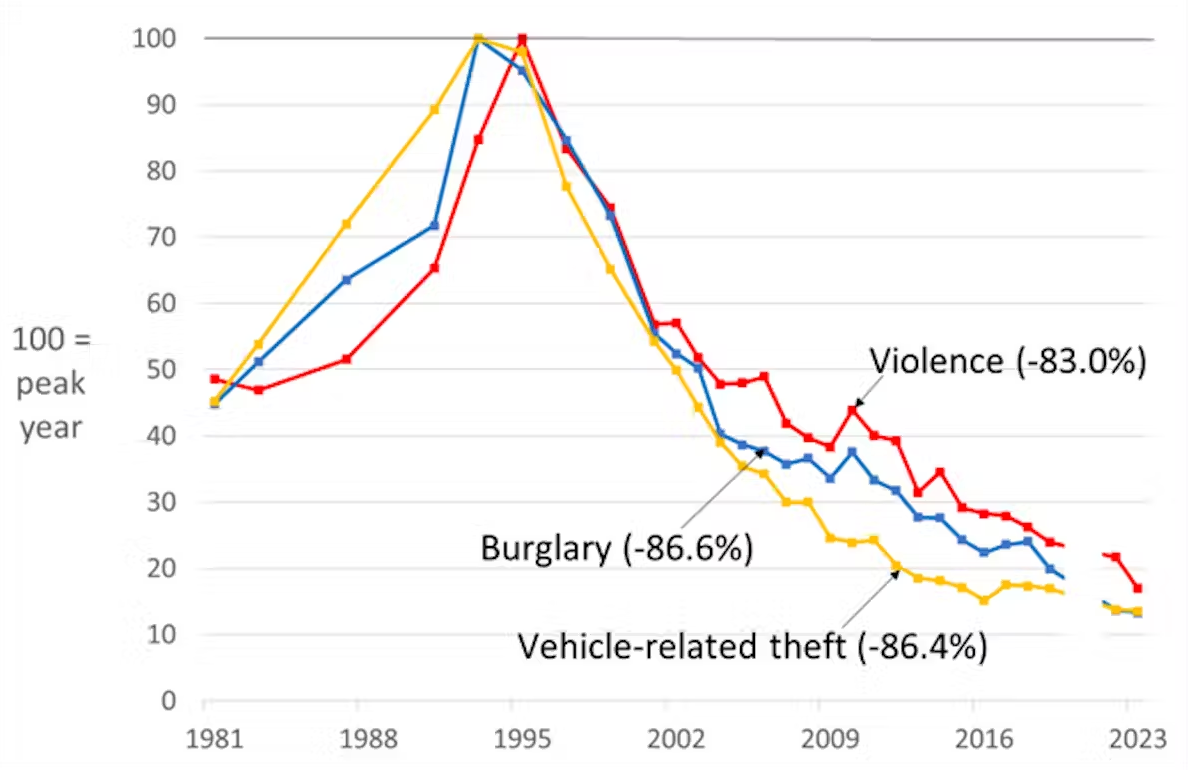
More good news you didn't hear about
Ghana’s fight against malaria has seen a major breakthrough, with a 90% reduction in malaria mortality since 2012. Mass shootings in the United States are down 29% from last year. The Kingdom of Saudi Arabia just pledged $500 million to end polio for good. World Central Kitchen has resumed its operations in Gaza. Real solutions to homelessness in the United States exist; Houston and New Orleans show the way. Student debts will be lowered for more than three million Australians. Schools in Rio de Janeiro have banned ultra-processed food and put Brazilian fruits and vegetables firmly back on the menu. One of America's largest Protestant churches just lifted its ban on LGBTQ clergy and same-sex weddings. 'We can expect to be more cognitively able than our grandparents were when we reach their age.' The real immigration crisis? Not enough immigrants.
If it bleeds, it leads
Spotted in The Guardian Australia earlier this week, above the fold on their site (i.e. before you have to scroll). By our count, this is at least the fifth crocodile story they've published this year. Not sure whether this is evidence of a national cultural obsession, or if it's just that testing shows crocodiles guarantee more clicks. Welcome to 'the news.'
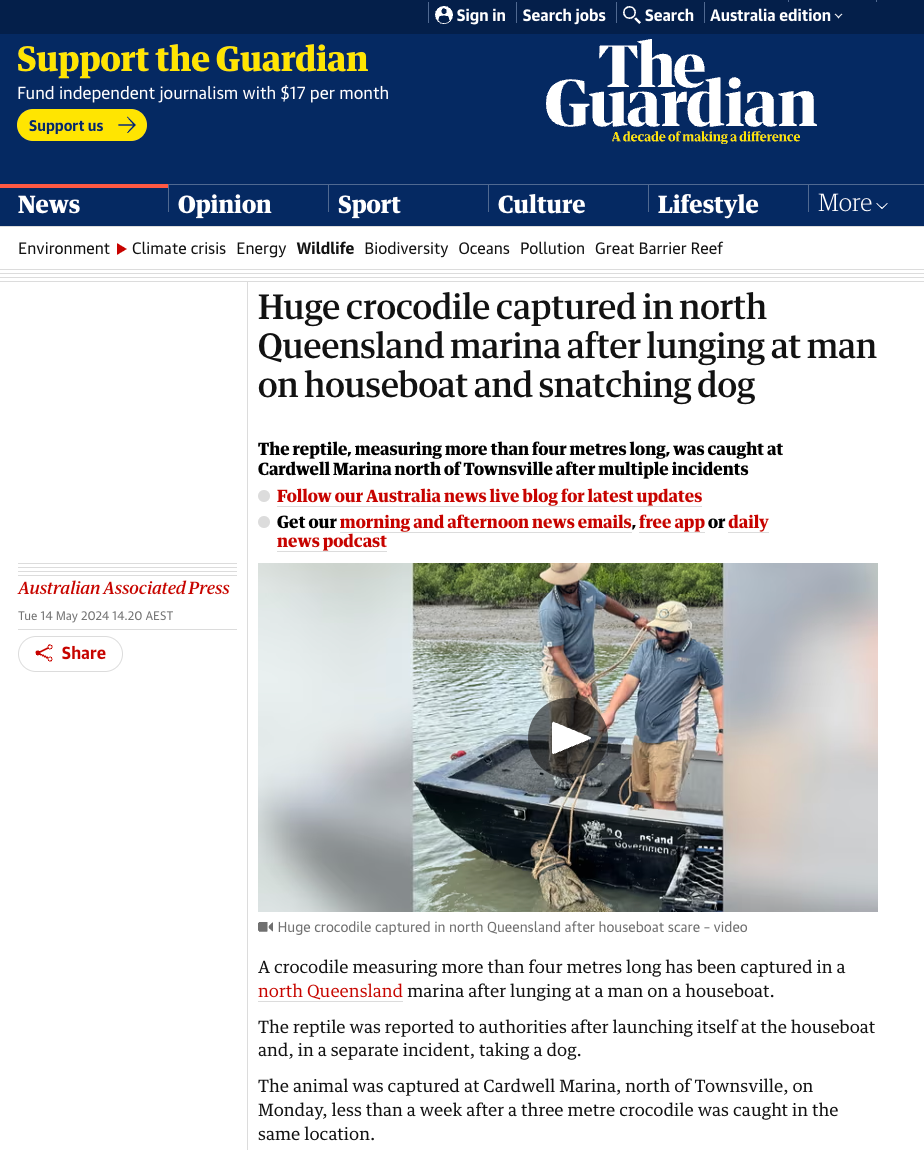
If this is of interest, you can donate by hitting the button below. Even just a few dollars is helpful. All of the funds raised will be used for the direct purchase of Kindles and computers for the girls. No middlemen, no admin fees, no overheads - we're just going to send them the money so they can buy the things.
Good news for the planet
Conservation measures are slowing global biodiversity loss
A major international study has shown that conservation efforts to reduce biodiversity loss are working, with two out of every three measures making a positive impact. Researchers spent 10 years reviewing 665 trials of conservation initiatives in different countries and oceans and across species types, with some dating back as far as 1890. Oxford
This study provides the strongest evidence to date that not only does conservation improve the state of biodiversity and slow its decline, but when it works, it really works.
Dr Penny Langhammer, Global Wildlife Conservation
Overfishing of commercial fish stocks has declined in the USA
The number of fish on the US overfishing list reached an all-time low last year, with 94% of fish stocks no longer subject to overfishing. Several important species were removed from the list, including cubera snapper, Atlantic Coast bluefish, and Atlantic mackerel, showing that regulation, when enforced, really works. AP
‘Remarkable recovery’ for Atlantic hake
The hake population in the waters of northwestern Europe has surged over the past two decades, thanks to strict catch limits, selective fishing gear, and large protected areas. The success of the rebound is attributed to a gradual increase in catch quotas, allowing the hake to be fished sustainably while protecting the livelihoods of coastal communities. Euronews
Alaskan reserve protected from new oil and gas leases
Thirteen million acres of a federal petroleum reserve in Alaska will be protected from new oil and gas leasing in order to help protect wildlife like caribou and polar bears. The area has been at the centre of a longstanding debate between environmentalists and developers since the 1970s; it was set aside as an emergency oil source for the U.S. Navy almost a century ago. Fast Company
Four national wildlife refuges in the US will be expanded
The expansion of two existing wildlife refuges in Texas—plus one in New Mexico and another in North Carolina—will allow for the voluntary conservation of up to 1.13 million acres of wildlife habitat. The initiative will protect critical habitats for at-risk species like the Atlantic sturgeon, endangered whooping crane, and lesser sandhill crane. DOI
Biden Administration announces expansion of San Gabriel Monument
The San Gabriel Mountains National Monument outside Los Angeles has been expanded by 13,696 acres, to total roughly 346,000 acres. The expansion will make the area more accessible to nearly 90% more people, especially thousands of low-income families, who will benefit from easy access to green space.
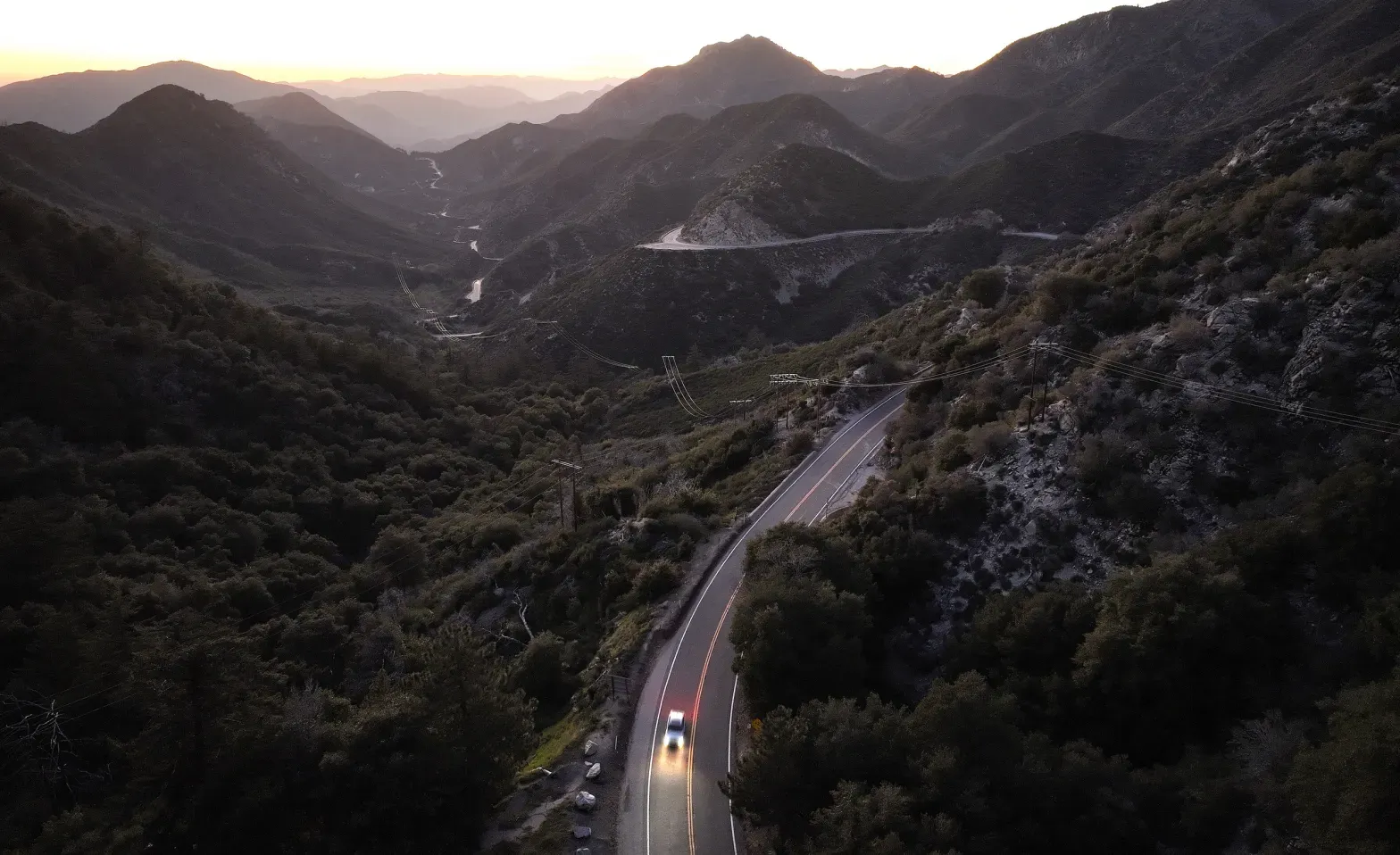
Good news for three whale populations
Scientists have confirmed the comeback of fin whales, with over 50,000 recorded in the Scotia Sea alone, more than triple the number previously estimated for the entire Southern Ocean. In the Seychelles, blue whales have been spotted for the first time in decades, and after 20 years of listening to the songs of Antarctic blue whales, researchers believe their numbers may be increasing.
Tromelin Island’s impressive comeback
Twenty years after the last member of the invasive rat population was eradicated, Tromelin Island, a small teardrop of scrubby sand near Madagascar, is a thriving seabird paradise once again. The island is home to thousands of breeding pairs from seven different bird species, including white terns and brown noddies, which hadn't been documented breeding on the island since 1856. Hakai Magazine
Peru safeguards a marine paradise
The Mar Tropical de Grau National Reserve will protect 1,157 km2 between two large marine ecosystems, the cold waters of the Humboldt Current and the warm waters of the Southern Equatorial Current. The area is home to the rare Humboldt penguin, the Pacific seahorse, the endangered hammerhead shark, and humpback whales, which travel to the area to give birth. Nature and Culture
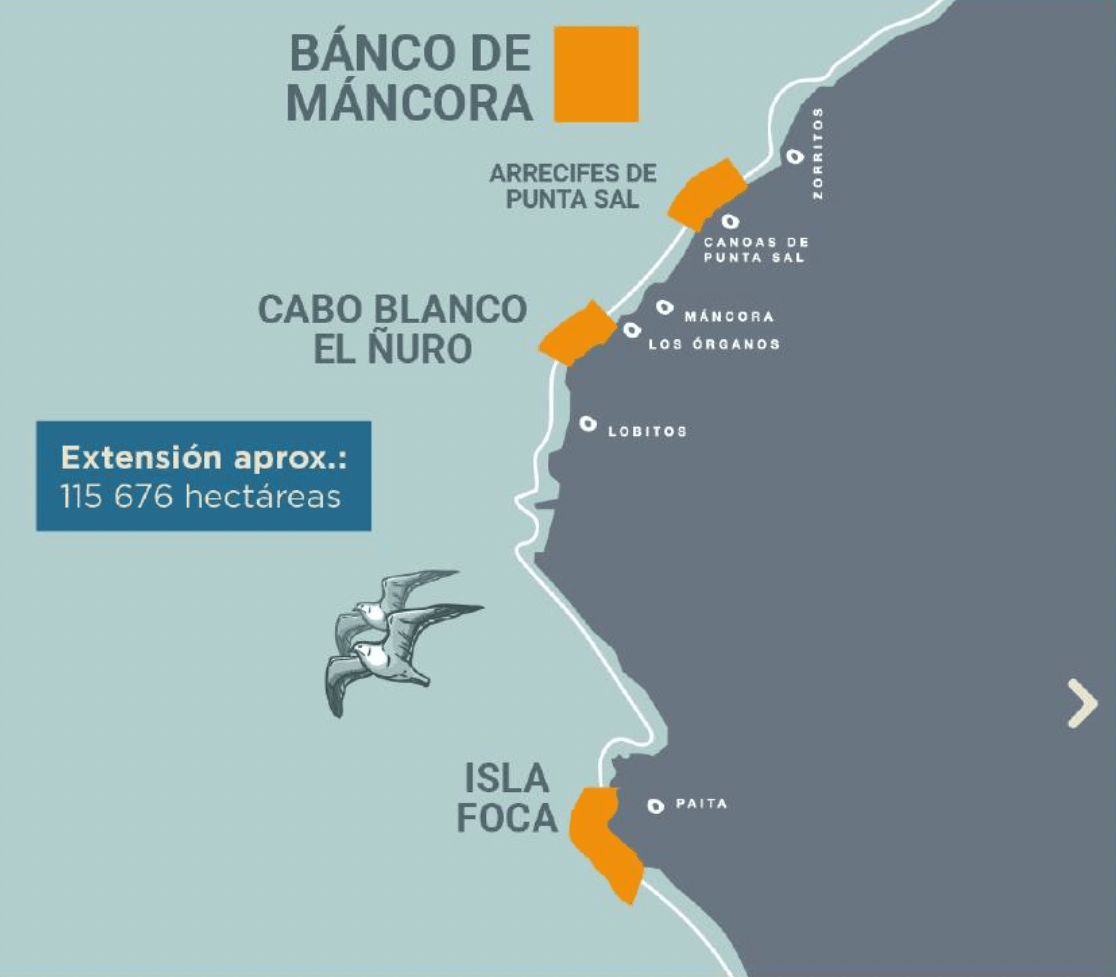
More music for those who will listen
The man who took on the coal industry to save a forest—and won! Los Angeles has captured 96.3 billion gallons of stormwater, enough to supply about 2.4 million people. In Guatemala, The Ocean Cleanup's Interceptor has prevented 1.4 million kg of trash from flowing into the Caribbean Sea during the first heavy rains of 2024. Broken glass is helping coastal restoration efforts in New Orleans. The UK has banned wet wipes containing plastic. Australia’s live sheep export trade will end in 2028. California has announced its first new state park in a decade. The EPA has banned another forever chemical, methylene chloride, used for stripping paint, cleaning metal, and decaffeinating coffee. One in three Americans has reduced their use of plastic products. Conservation efforts are working in Bangladesh, with a 53% increase in olive ridley sea turtle eggs. Grizzly bears will return to the North Cascades in Washington. The beavers that were reintroduced to West London last year are thriving. The total area of the world’s coral reefs is almost 25% larger than we thought. How scientists are becoming coral midwives. Meet the 2024 Goldman Environmental prize winners.
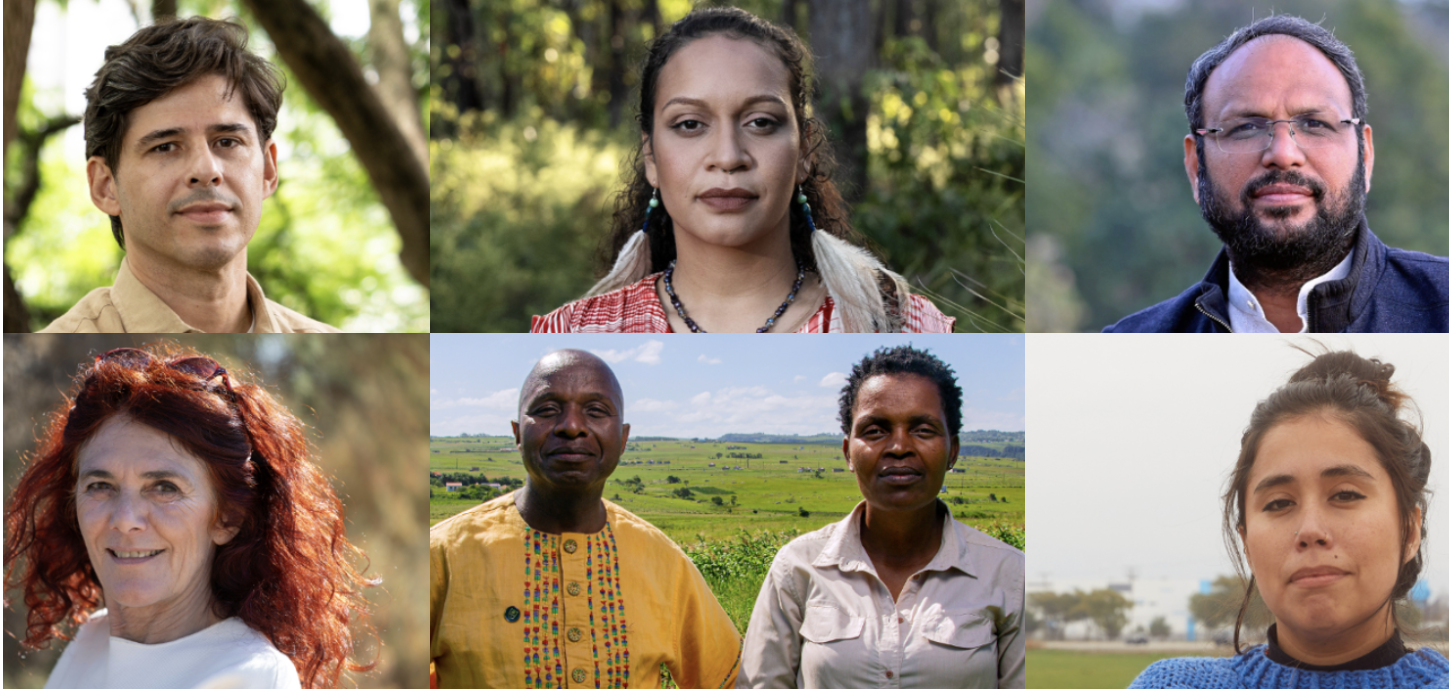
That's all for this edition, thanks for reading. It's great to be back. We'll see you next week.
With love,
Gus and Amy



